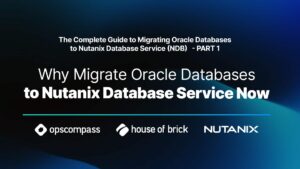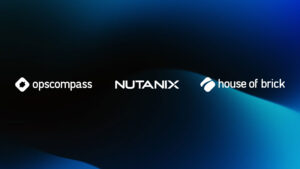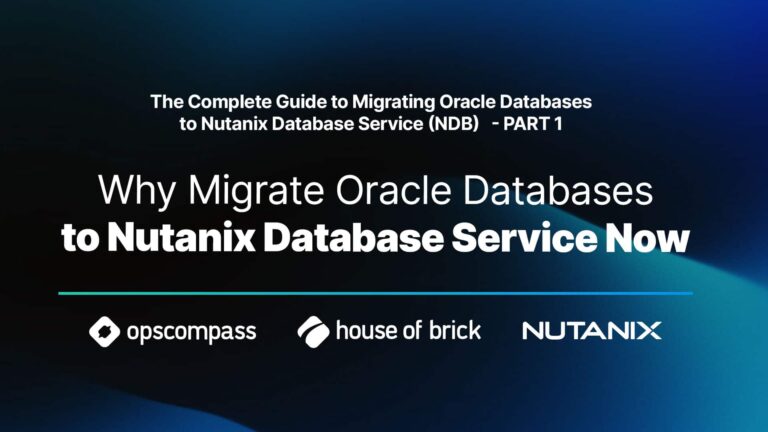Broadcom today confirmed the rumors of a few days ago that it was in acquisition talks with VMware.
My reaction: anybody but Oracle. Before I explain my insertion of Oracle into the discussion, let’s touch on some other dynamics of Broadcom acquiring VMware.
Pros and Cons
At the time of the Dell divestiture, VMware CEO Raghu Raghuram mentioned the software development benefit VMware would glean from independence. While I have no doubt Raghuram’s sentiment was sincere, it didn’t make sense to me. My read of the analysts’ statements as Dell divested VMware is that it was inevitable that VMware would be acquired by someone. That had my telescope scanning the horizon for candidate acquirers.
CRN’s Mark Haranas makes the point in his 5/23/22 10:58 Eastern piece “Broadcom’s potential VMware Acquisition: 5 Things About Dell, Stock Prices, And Hock Tan To Know” that VMware’s CPU off-load project Monterey announced in 2020 would fit nicely with Broadcom’s chip chops.
On the downside, I’ve not been a fan of CA. Prior to CA’s 2018 acquisition by Broadcom, CA has a reputation for acquiring companies and milking their products dry without doing much to continue to develop the products. Around the office, we used to call CA the shark. One can only hope that CA M.O. somehow got shed with Broadcom’s CA acquisition.
Anybody but Oracle
Now back to my concern about the potential that Oracle might be the party to scoop up VMware. This lone wolf, unintentionally humorous 2010 article flat-out declared Oracle was acquiring EMC & VMware. Bloomberg’s 7/22/20 piece “5 Tech Giants That Could Buy VMware If EMC Decides to Sell It” includes Oracle. There was a time when things were great between the two companies. In 2004 Oracle announced all its Core Technology products on Windows and Linux—some seven thousand hosts–were moving to VMware GSX.
Then Oracle went sour on VMware. You can date it: July 2007. The hard copy of Oracle Magazine that month sports a four-page Oracle RAC on VMware cookbook. Then suddenly the piece came up missing out of the issue’s on-line copy.
Whatever other dynamics may have been at play, it doesn’t take a rocket scientist to observe that VMware has been a major thorn in Oracle’s Core Technology revenue side. Take an Oracle database on a bare metal production server that may have clicked along at 15% CPU utilization during business hours but close to 100% during a swing/grave shifts batch cycle. Right next to it was a bare metal server hosting developers and testers during the daytime, but the server was asleep after-hours. Introduce live migration and load balancing into the equation, and it’s not hard to see how that production server could improve from 15% to 50% CPU utilization or more. That’s a 300+% efficiency improvement of an Oracle processor-based license. Suffice it to say, Oracle has done everything it can to impede Oracle on VMware workloads, inducing FUD into the database administration society and misrepresenting the terms of executed Oracle agreements.
Immediately after Dell Corp’s announcement, I began watching Google for any news or rumors of encounters or calls between Michael Dell & Larry Ellison. That I have not scored any results is no guarantee that the two haven’t interacted on the topic. News of Ellison’s involvement in a high-level strategy call shortly after the 2020 presidential election managed to stay out of the news until last week.
I thought the 10-minute VMworld 2021 pre-recorded session with Raghu Raghuram and Ellison might be the obvious place for Oracle to announce acquisition. The session’s abstract was quietly enhanced to include Ellison about a week before the show. The session had two effects on me. First, I was happily disappointed no acquisition announcement was made at the time. Any potential deal could fall apart for any number of reasons before it’s executed. Second, I had a substantial negative emotional reaction to the syrupy “we’re-buds” tone of the interview.
VMware appears to have all but moved on from focus on core technology sales in favor of development and peripheral tooling. The marketing surrounding the rebranding of VMworld to VMware Explore leads me to believe people coming for VMware core tech may be disappointed in a shift in emphasis. I have wondered how many hundreds of millions in core tech sales VMware has lost over the years in the Oracle on VMware market due to VMware’s decision not to accommodate licensees’ request for indemnification against Oracle’s extortionate claim. That claim is that Oracle on VMware is already installed and license-obligated on all ESXi hosts in the VMware farm, including hosts where Oracle program VMs have never been and may never go. Now that VMware core technology sales compensation is all but gone, VMware’s executive and legal teams will no doubt feel less incentive to reconsider their lazier faire stance toward Oracle Corp.
Meanwhile, Oracle has been perfectly silent in the courts regarding its Oracle on VMware licensing claim. Six and a half years have passed since candy confectioner Mars sued Oracle. One of Mars’ causes of action being Oracle’s demand for specifications on its entire VMware farm, not just the farm subset hosting Oracle program VMs.
What if Oracle Acquired VMware?
I won’t even start brainstorming the ways Oracle could further impede the Oracle on VMware market. My colleague David Woodard observes it would in theory be possible for Oracle to cross reference Oracle software customers with VMware customers and use that to target those customers for audit. I’m reminded of an encounter years ago with the House of Brick CEO Nathan Biggs in our office’s break area:
“Dave, hasn’t it occurred to you that Oracle doesn’t want OVM (Oracle Virtual Machine) to be stable? If it were stable, it would induce the same hemorrhage in Oracle Core Technology revenue that VMware does.”
Nathan Biggs, House of Brick CEO
Duh. It was too obvious.
I can’t imagine how complicated things would get if Oracle were to acquire VMware. When Dell Corp. announced it was divesting itself of VMware’s majority position, I scoured VMware.com to archive any Oracle licensing on VMware artifacts—all of which would be contractually accurate—that prospective new owner Oracle would of course demand be purged.
Some might wonder why I would complain about the prospect of Oracle acquiring VMware. With VMware’s Oracle specialty team muzzled, surely that would create more demand for both House of Brick Oracle licensing services and product, and services to architect and implement re-platforming to non-Oracle database products. I’m reminded of a client who responded to the FUD’s permeating professional intrusion by blocking Oracle’s calls. I had to take my shoes off to count the number of C-levels that have declared no incremental projects are going on Oracle. Such declarations are made fully aware of dual licensing expense, project delays, and training on alternative products. It’s an IT business risk they’re reacting to, not a technology risk. I’d hate to see such scenarios get any worse than they already are.
Winners: Broadcom, VMware kernel, Michael Dell, Silver Lake Partners, VMware stockholders.
Losers: Oracle.







